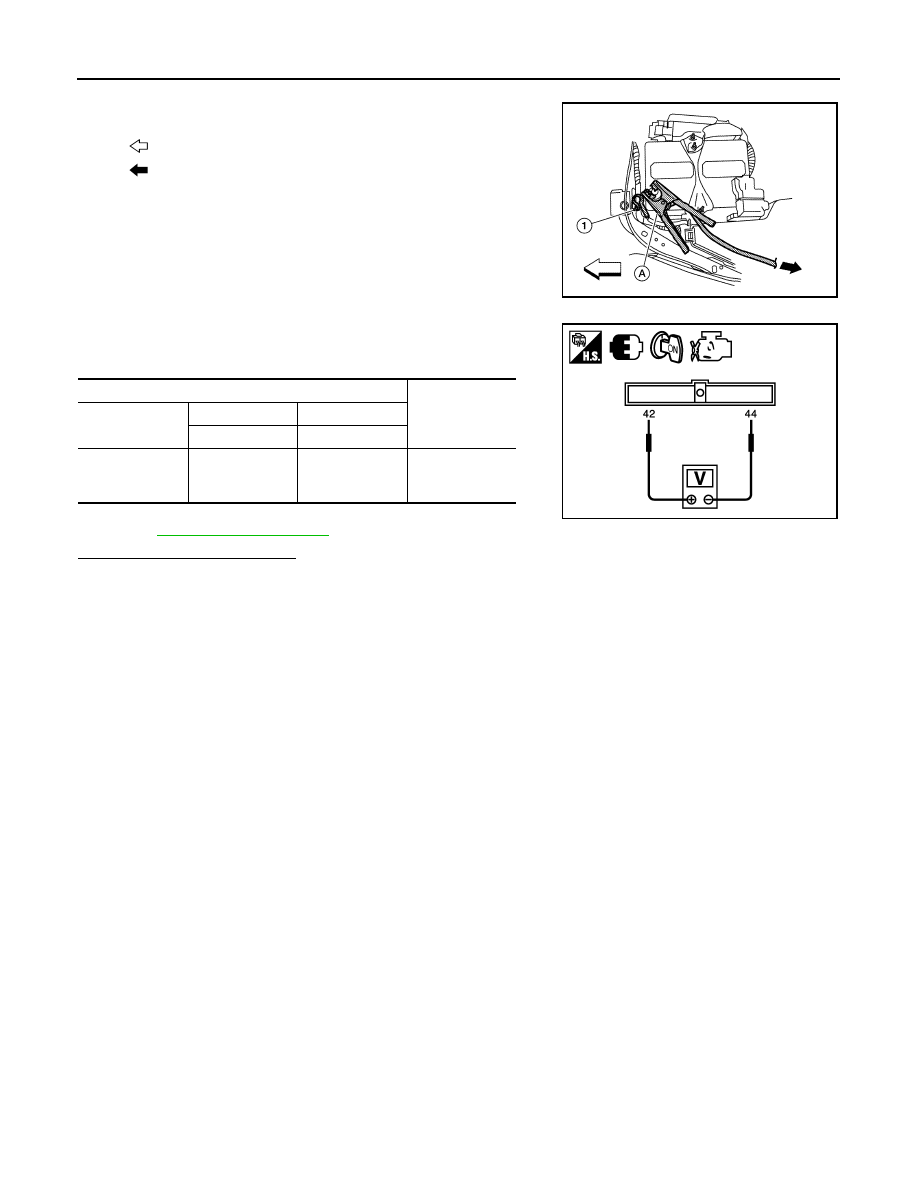Nissan Maxima. Manual - part 483

EC-416
< DTC/CIRCUIT DIAGNOSIS >
[VQ35DE]
P1550 BATTERY CURRENT SENSOR
2. Reconnect harness connectors disconnected.
3. Disconnect battery negative cable (1).
4. Install jumper cable (A) between battery negative terminal and
body ground.
5. Turn ignition switch ON.
6. Check the voltage between ECM harness connector terminals
under the following conditions.
Before measuring the terminal voltage, confirm that the battery is fully charged.
Refer to
.
Is the inspection result normal?
YES
>> INSPECTION END
NO
>> Replace battery negative cable assembly.
: Vehicle front
: To body ground
ALBIA0610ZZ
ECM
Voltage (V)
Connector
+
–
Terminal
Terminal
F13
42
(Battery current
sensor signal)
44
(Sensor ground)
Approx. 2.5
JMBIA1879ZZ